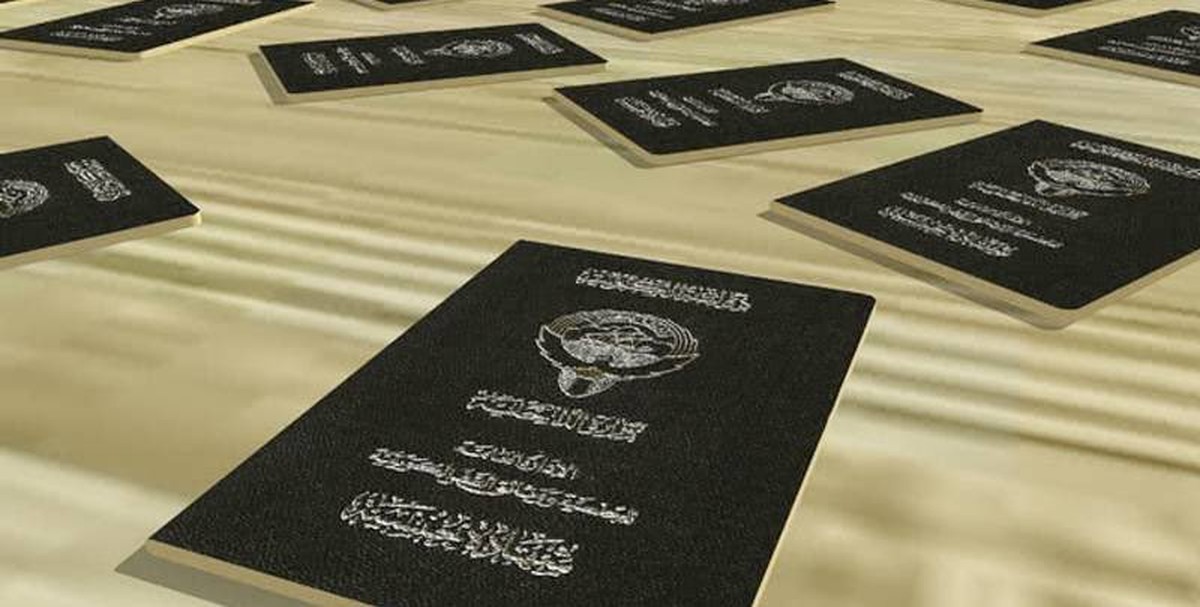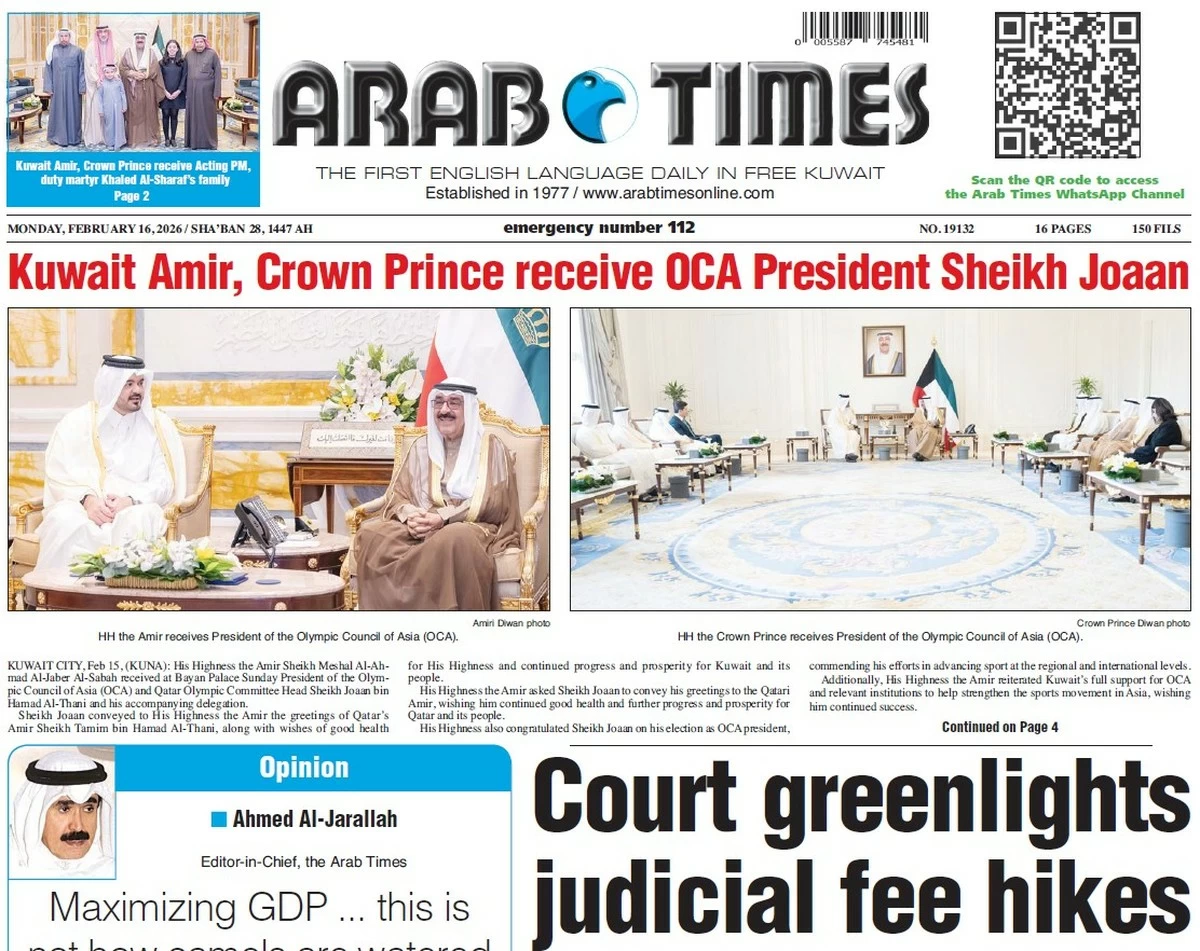10/07/2025
10/07/2025

For new revocation cases, this four-month period will begin from the date the decree is issued. In addition, affected individuals are granted a one-year grace period to amend their legal status by coordinating with their respective embassies to obtain either the passport of their original nationality or any valid official document for residency in Kuwait. According to the ministry, individuals under this category can continue to work in the government sector, study at all levels of education, and own private housing. A five-year grace period is given to those under this category. Those benefiting from public State properties; such as chalets, barns, agricultural, industrial and commercial plots, and other properties, should settle their status by relinquishing these properties without any prescribed fees to their first-degree relatives, provided the latter are Kuwaiti citizens.
The ministry specified the procedures as follows:
1. The person concerned and their dependents shall amend their legal status by coordinating with their embassy to receive the original passport of the previous nationality they held before obtaining Kuwaiti citizenship, based on noble deeds, or any official passport granted through it.
2. Adherence to the one-year grace period for amending status, starting from the date of issuance of the decree and its publication in the Official Gazette, to ensure continued access to the benefits provided. After the grace period, those who have not amended their legal status in the country will no longer be eligible for benefits. They must take all necessary measures by visiting their embassy to obtain a passport.
3. The concerned party must initiate the process within the first three months from the start of that grace period and must provide proof of this. If it is proven that they are not serious about taking action to amend their status within the first three months, their benefits will be revoked. The ministry affirmed its commitment to implement the laws fairly and transparently, taking into account the humanitarian aspects when dealing with cases covered by the ‘Noble Deeds’ Clause and the necessary measures must be taken to ensure the stability of their legal status in the country.
The following are the benefits granted:
1. Continue to work in the government sector or government companies according to contracts issued by the Civil Service Commission (CSC) to government agencies and special contracts from government companies, without the right to hold a position -- leadership or supervisory positions.
2. A person whose citizenship has been revoked has the right to the education provided by the State before the revocation of citizenship as follows:
a) Continue their studies at all levels (elementary, intermediate and secondary).
b) Continue their studies for the diploma, university or postgraduate degree that they started before their citizenship was revoked.
c) Continue their studies on internal or external scholarships granted prior to the revocation of citizenship.
3. Continue to own one private residence within the State of Kuwait. Exceptions apply to those who own more than one private residence prior to the revocation of citizenship due to polygamy. For example, if they have more than one family due to polygamy, they may retain more than one residence and use it for private housing.
4. Retain the housing support granted prior to the revocation of citizenship, subject to the following frameworks and conditions:
a) Anyone who has completed construction of a housing unit and received all payments from Kuwatt Credit Bank (KCB) shall retain the residence, provided that they are committed to repaying all amounts received from KCB within a period not exceeding one year from the date of publication of the decree on withdrawing their citizenship in the Official Gazette.
b) Whoever received a building permit and commenced construction is obligated to complete the construction at their own expense, and to pay the value of what was received from KCB within two years from the date of publication of the decree on withdrawing their citizenship in the Official Gazette.
C) Whoever obtained a building permit but does not commence construction shall retain the land granted to him and undertake to build on it at his own expense. He shall be granted private housing for himself and his family within a period not exceeding two years from the date of publication of the decree on withdrawing citizenship in the Official Gazette.
5. Continue to sponsor domestic workers and own private vehicles under applicable regulations. Those covered by the above provisions shall not be treated as Kuwaitis in terms of the following rights:
1. Usufruct rights over public State properties, such as chalets, barns, agricultural, industrial and commercial plots, and others. The beneficiary shall be granted five years to settle his status by relinquishing it without any prescribed fees to his first-degree relatives (provided the relatives are Kuwaiti citizens).
2. For commercial, investment and industrial real estate and vacant land privately owned by the person whose citizenship has been revoked, he shall be granted a period not exceeding five years to transfer ownership through sale, gift or transfer and settle his status. Benefits shall be suspended in the following cases:
1. Issuance of a final judgment in a felony, a crime involving dishonor or dishonesty, a State security crime; or a crime involving harm to the Divine, the Prophets or HH the Amir.
2. Failure to comply with the conditions for amending one’s status by failing to restore one’s original citizenship or obtaining an official document valid for residency in the State of Kuwait within one year from the date of publication of the citizenship withdrawal decree in the Official Gazette, whichever is sooner.
Adjusting one’s status does not prevent one from submitting a grievance to the Grievance Committee for Withdrawal, Forfeiture and Loss of Kuwaiti Citizenship -- established through Cabinet Resolution No. 207/2025 and amended by Resolution No. 493/2025. The ministry emphasized the need for all affected individuals to adhere to the deadlines, consult relevant authorities, and complete necessary procedures to ensure their legal status is settled under national regulations
By Munif Naif
Al-Seyassah/Arab Times Staff


